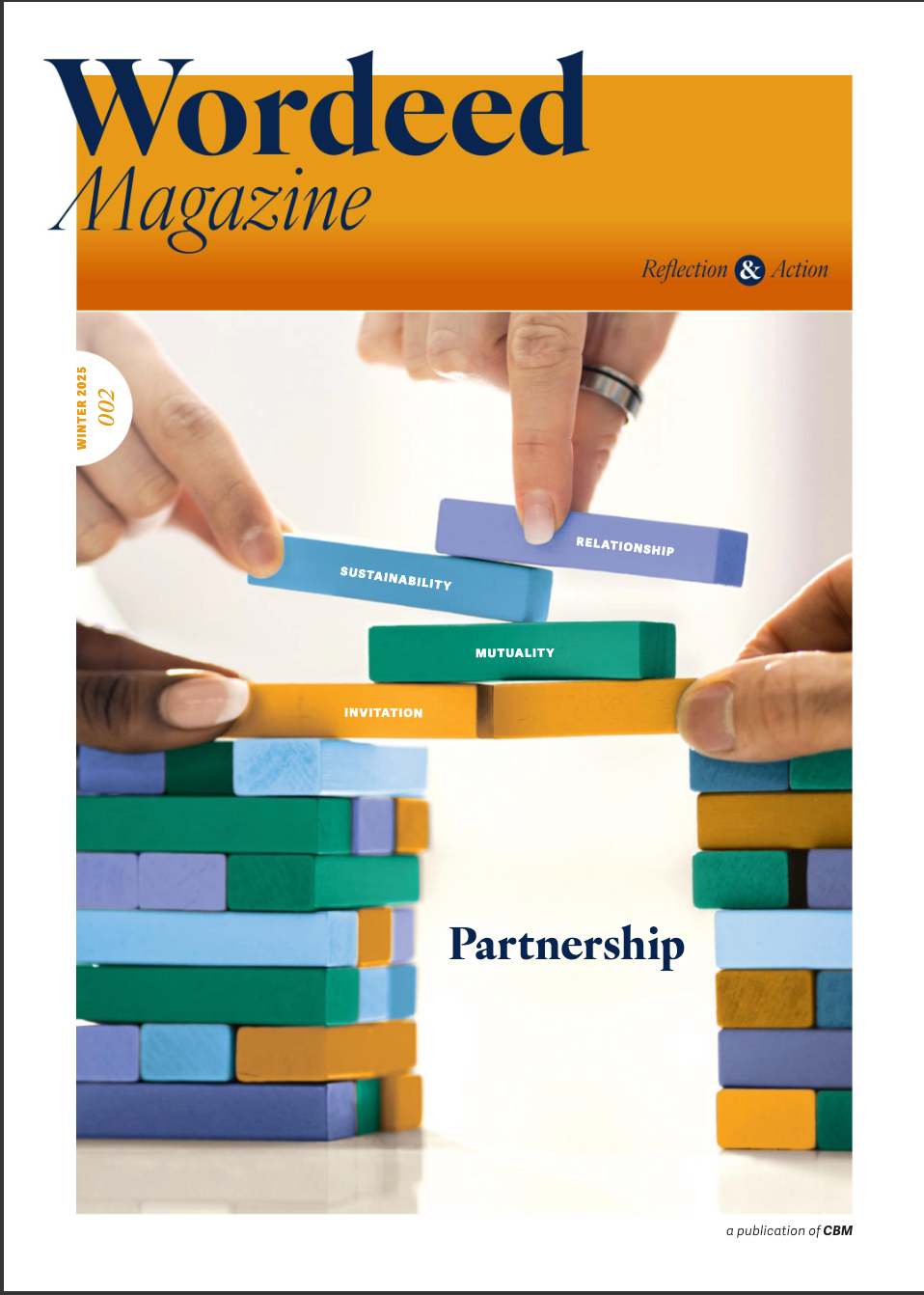Director of Partnerships, Americas and Asia
At Canadian Baptist Ministries, we firmly believe that God works through local churches to bring transformation to communities around the world. Guided by this conviction, we commit to joining God on his mission by partnering with the church in the Majority World in meaningful and relational ways. Mutuality in partnership is a cornerstone of CBM’s values. But what does partnership truly mean to us? Are these connections simply transactional agreements, defined by terms and conditions? Is CBM’s role as a mission agency reduced to being a source of funding for its Majority World partners? Conversely, are global partners merely a means through which CBM fulfills its mission? Or is there something deeper — something more profound — that defines these relationships?
Faces and Stories
When I reflect on our global partnerships, my mind is not drawn to organizational structures or contractual obligations but to the faces and stories of those I have had the privilege of serving alongside. I think of Maykel, Javier, and Coralia from the Caribbean, whose perseverance and faith amidst incredible challenges continues to inspire me. I remember moments of worship, prayer, and fellowship with Pastor Enrique and others in the Dominican Republic — times marked by a profound sense of God’s presence and shared purpose. I recall a recent meal shared with the leadership of the Bolivian Baptist Union, a gathering rich with wisdom, history, and collaboration. My thoughts turn to Rev. Jeremiah, Beth, and Martha from our Kenyan partner, the Africa Christian Church and Schools, and the joy of hosting them during their visit to Canada. I picture sitting with Pastor Doudu in rural Myanmar, listening as he shared his heart and vision for people living in rural mountainous communities to know the love of Jesus.
“You can’t spend money to buy a relationship.” Those words have stayed with me, reinforcing the truth that partnership must be more than a financial transaction.
A Rwandan church leader once shared, “You can’t spend money to buy a relationship.” Those words have stayed with me, reinforcing the truth that partnership must be more than a financial transaction. To faithfully carry out the mission God has called us to, we must embrace a relational model — one where the church in Canada walks in step with the church in the Majority World, learning from one another and growing together in Christ’s mission.
Reflecting God’s Kingdom
This relational approach is rooted in the understanding that God’s very nature is relational. The doctrine of the Trinity reveals God as a community of three persons in perfect unity — a divine model of love, partnership, and interdependence. This theological foundation underscores the belief that relationships are central to human flourishing and integral to reflecting God’s kingdom on Earth.
God’s word provides a rich foundation for relational ministry. The incarnation of Jesus is the ultimate example, as God became flesh and dwelt among us (John 1:14), entering fully into the human experience to reveal his love and redeem the world. The Great Commandment — to love God with all that we are and to love one’s neighbour as ourselves (Matthew 22:37-39) — calls us to deep and sacrificial connections. Additionally, the Apostle Paul’s metaphor of the church as a body (1 Corinthians 12:12-27) emphasizes the interdependence of individuals and communities, where each member joins in partnership and contributes uniquely to the whole.
Just as Christ entered our world to demonstrate his love, we seek to embody an incarnational approach – walking alongside partners in authentic, life-giving relationships.
For CBM, these theological and biblical principles shape our engagement with global partners, emphasizing the importance of relationships built on mutual care, respect, and accountability. Just as Christ entered our world to demonstrate his love, we seek to embody an incarnational approach — walking alongside partners in authentic, life-giving relationships.
People Over Projects
While relationships are vital, building and maintaining them is not without challenges. Relationships are inherently complex. They are often messy, non-linear, and unpredictable, requiring patience, grace, and vulnerability. In a world that prizes efficiency and measurable outcomes, prioritizing relationships challenges us to sacrifice our Western obsession with control and expedience. Partnerships are not always the easiest way to carry out ministry, but I believe strongly that they are the best way.
At CBM, relationships are the essence of our global mission strategy. True and lasting change rarely comes from perfectly executed plans or adhering strictly to tight timelines — it emerges in the spaces where we engage deeply with one another, navigating mis- understandings, cultural differences, and even conflict. Partnership calls us to embrace this messiness, trusting that the transformative power of relationships mirrors the way God continually shapes and refines us through our relationship with him.
To prioritize people over projects and relationships over results is to commit to placing people and their stories above the comfort of predictable outcomes. It requires sitting with discomfort, listening to perspectives that challenge our own, and relinquishing the desire to always “get it right.” Yet, this is where the beauty of partnership lies. Just as our relationship with God invites us to grow, evolve, and be transformed, so do our relationships with one another.
In walking alongside global partners, we are reminded that the Kingdom of God is not built on efficiency but on love, grace, and mutual transformation. This relational approach demands much of us, but it also offers deep rewards — strengthened faith, profound connection, and the shared joy of witnessing God’s work in and through us all.
Reflecting God’s Kingdom
Our global partnerships span continents and cultures, addressing diverse challenges in various contexts. To ensure that relationships remain central to our mission, we follow several key principles:
- Mutual Trust and Respect Strong partnerships are built on trust, developed over time through consistent communication and shared experiences. CBM prioritizes listening to and learning from partners, recognizing their deep understanding of their own communities’ needs.
- Cultural Sensitivity and Humility Engaging in diverse global contexts requires humility and openness to learning. CBM approaches each partnership with cultural sensitivity, ensuring that initiatives respect and incorporate local traditions and wisdom.
- Equity and Shared Leadership True partnership transcends hierarchical structures. CBM fosters equitable relationships where power and resources are shared, and decisions are made collaboratively, reflecting the voices of all stakeholders.
- Long-Term Commitment Relationships take time to flourish. While some partnerships have predefined timelines, many are long-term commitments that allow for deep bonds to form and sustained impact to be achieved.




